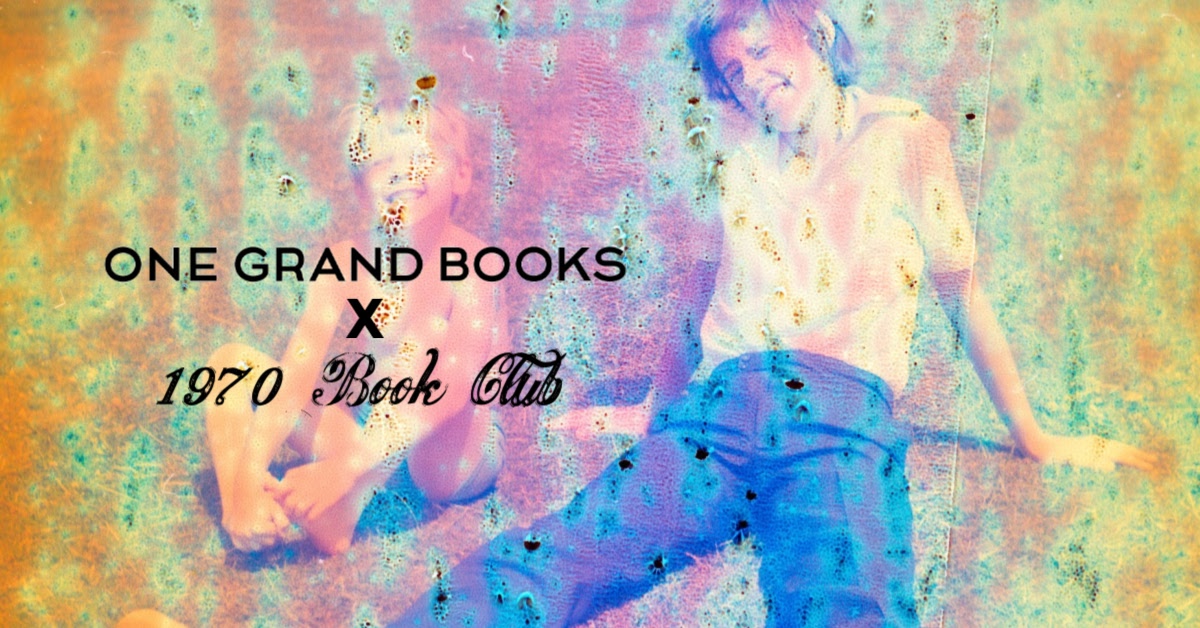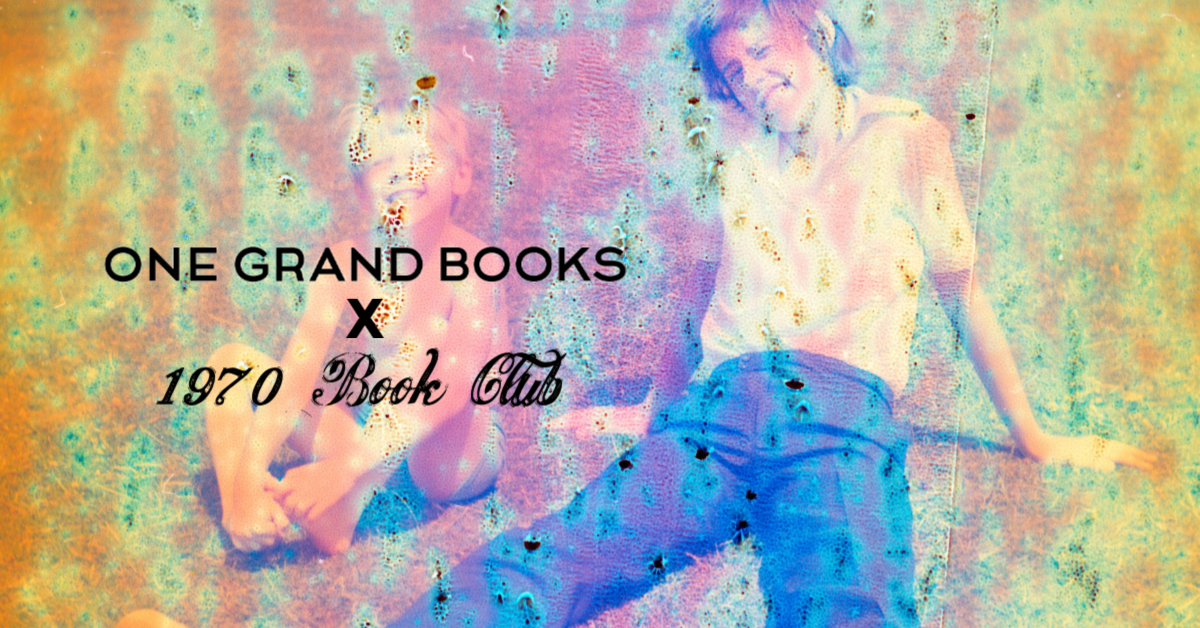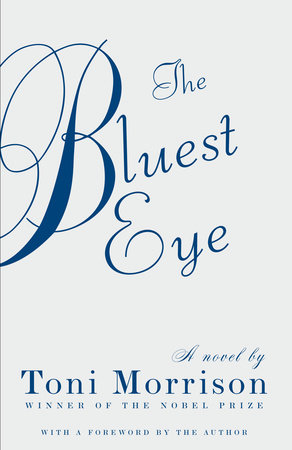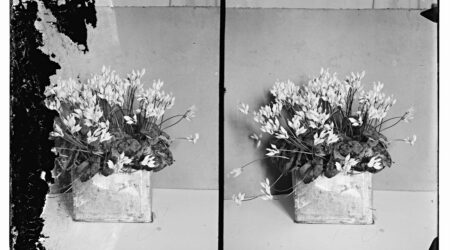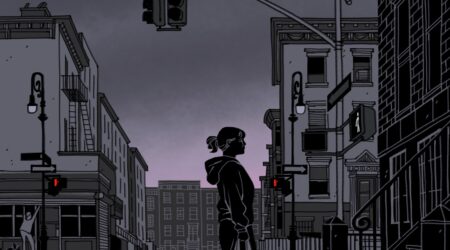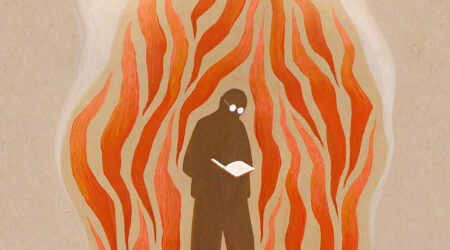Vote for ten books you want to read (or reread) from the year in which the Concord made it’s maiden flight, the Beatles disbanded, and Apollo 13 aborted its mission to the moon.
Last year we launched our first book club, reading 10 books first published in 1969. This year we’re moving on by announcing the 1970 Book Club. Fifty years ago, Richard Nixon was in power, the Beatles were over, and the Nobel Prize for Literature was awarded to Aleksandr Solzhenitsyn, the dissident writer who helped expose the Gulag labor camps. One year after Neil Armstrong’s “small step for mankind,” it was “Houston, we have a problem.” What, if anything, do the books of that year reveal about the concerns of the time, and how do they speak to us today? The year was ablaze with brilliant, groundbreaking works by Joan Didion, Milan Kundera, Toni Morrison, and Saul Bellow, as well as a Nordic Noir classic by Maj Sjowall and Per Wahloo. What’s more, all of these titles have all had five decades to demonstrate their longevity and worth. Which ten of 20 selected titles do you want to read in 2020.
We’ve selected 20 works of literature, each with a brief synopsis below, published in 1970, and now invite you to help us whittle that list down to ten by voting for the titles you’d most like to read (or reread). We’ll be announcing the final list next week and readers will have four weeks to read each of the titles. There is no pressure to read all ten if you’d prefer to cherry pick. To sign up just send an email to us at books@onegrandbooks.com and we’ll reply with further details.
As we read through the books, we’ll be posting your feedback and comments on this site, and offering a monthly live chat for wider group discussion as well as exclusive interviews with authors and the writers who champion them.
For those who live in or near Narrowsburg, look out for monthly cheese and wine book discussion salons which will be announced in our newsletter and on our social media platforms. On your marks, get set…. Read!
The Longlist
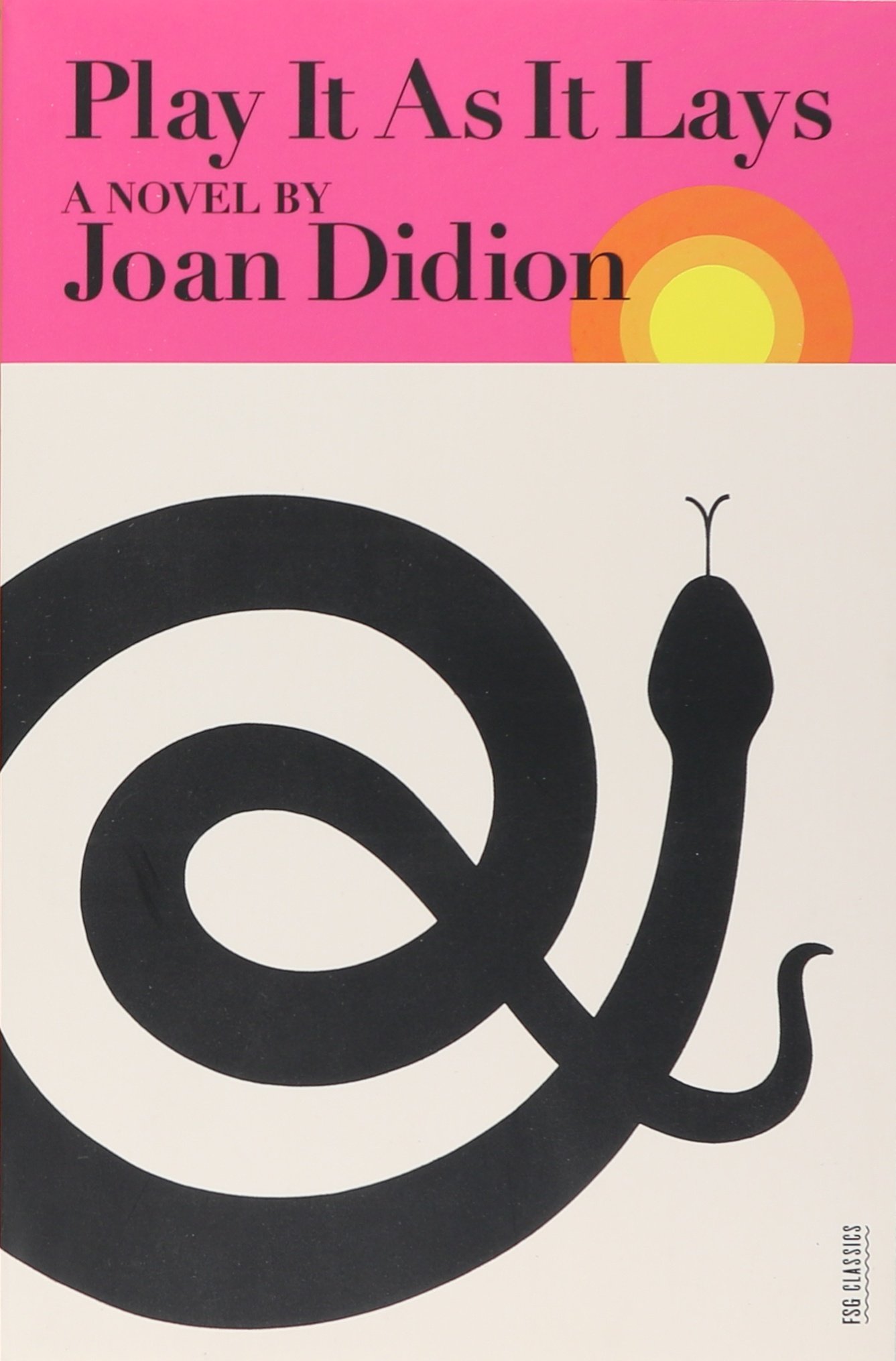 PLAY IT AS IT LAYS, Joan Didion
PLAY IT AS IT LAYS, Joan Didion
“Writing a novel, which is what I thought I’d like to do, turns out to be not very gratifying in the end because nobody reads them anymore,” Joan Didion told a writer at The Guardian in 2011. Maybe, but her five novels deserve real attention: they are every bit as good as her better known essays. Of them, Play it as it Lays, her dissection of American life in the late 1960s, is her most successful (landing on One Grand book selections by Michael Stipe, Justin Vivian Bond, and Bret Easton Ellis). Narrated by 31-year old Maria Wyeth, who is confined in a psychiatric hospital, it is fragmentary and elliptical, evoking an ennui that seems particularly Californian.
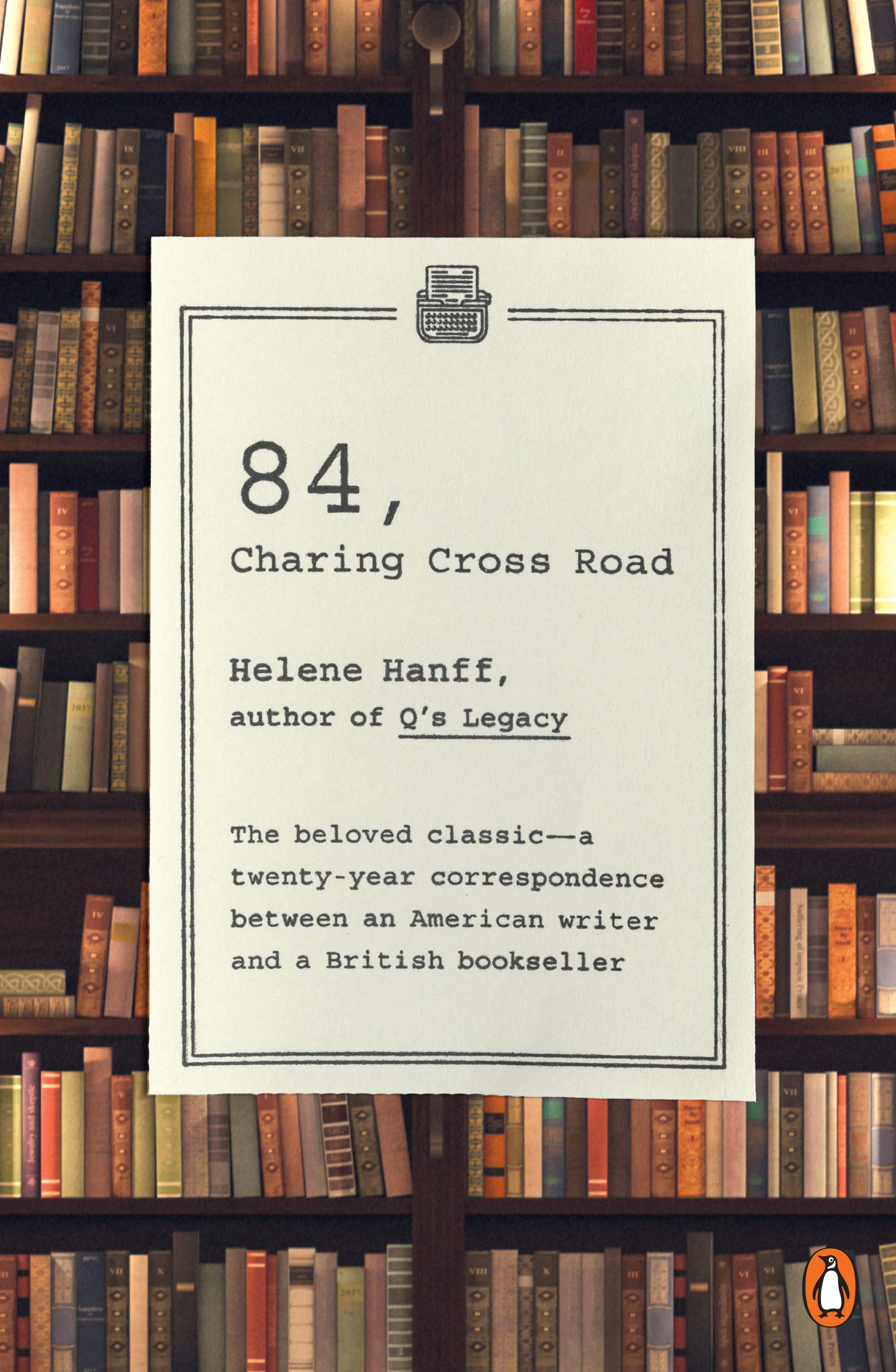 84 CHARING CROSS ROAD, Helene Hanff
84 CHARING CROSS ROAD, Helene Hanff
This charming classic, first published in 1970, brings together twenty years of correspondence between Helene Hanff, a freelance writer living in New York City, and Frank Doel, a used-book dealer in London. Made into a 1987 movie starring Anthony Hopkins and Anne Bancroft, who won a BAFTA for her performance, it’s a love story to book lovers. Through the years, though never meeting and separated both geographically and culturally, Hanff and Doel share a deeply touching, warmly engaging friendship based on their common love for books.
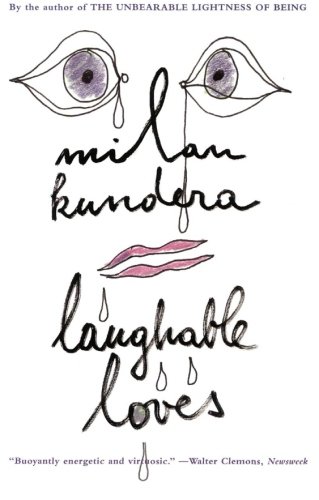 LAUGHABLE LOVES, Milan Kundera
LAUGHABLE LOVES, Milan Kundera
“If I had to define myself, I would say I am a hedonist trapped in a world politicized in the extreme,” wrote Kundera in The New York Times in 1985. “Such is the situation I depict in Laughable Loves, the book of mine I am fondest of because it reflects the happiest period of my life.” Also writing in The New York Times in 1974, Paul Theroux declared Kundera “a magnificent short story writer and a reasonably good novelist,” citing this collection of seven stories as evidence. Each is concerned with the complex erotic games and stratagems employed by women and men as they try to come to terms with needs and impulses that can start a terrifying train of events.
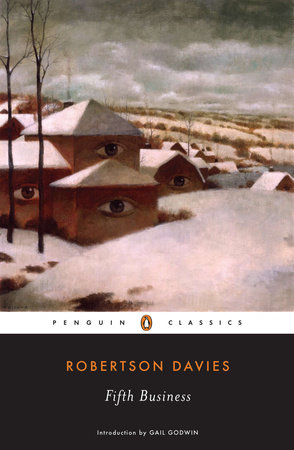 FIFTH BUSINESS, Robertson Davies
FIFTH BUSINESS, Robertson Davies
In the first of Davies’ highly acclaimed Deptford Trilogy, Fifth Business, a misaimed snowball sets off a chain of events. Ramsay has returned from the hell of the battle-grave at Passchendaele in World War I decorated with the Victoria Cross and destined to be caught in a no man’s land where memory, history, and myth collide. “I like being a novelist for the same reason that Charles Dickens liked being a novelist,” Davies once told the New York Times. “You can play all the parts, arrange the scenery, be the whole show and nobody gets in the way.”
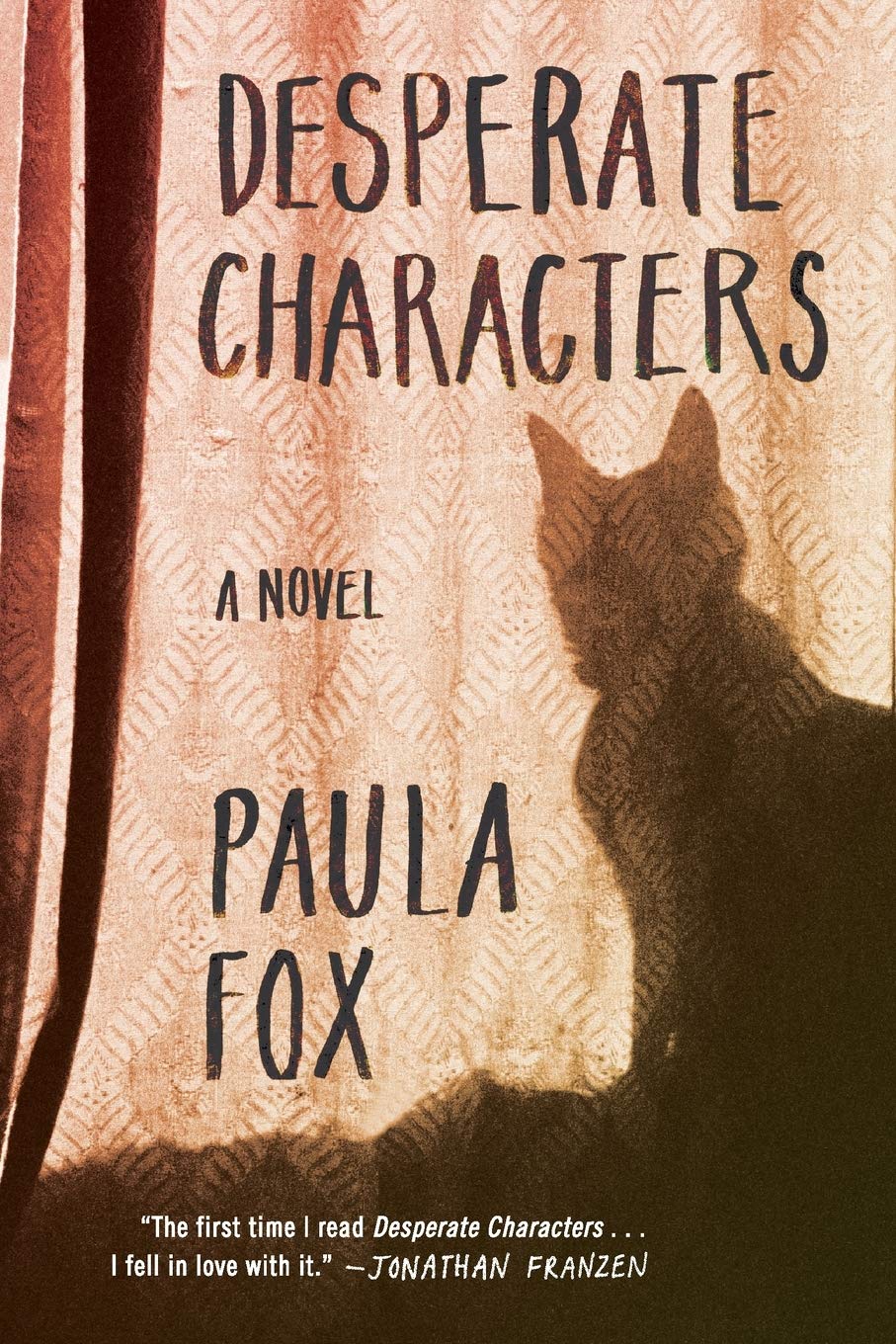 DESPERATE CHARACTERS, Paula Fox
DESPERATE CHARACTERS, Paula Fox
Otto and Sophie Bentwood live in a changing neighborhood in Brooklyn. Their stainless-steel kitchen is newly installed, and their Mercedes is parked curbside. After Sophie is bitten on the hand while trying to feed a stray, perhaps rabies-infected cat, a series of small and ominous disasters begin to plague the Bentwoods’ lives, revealing the fault lines and fractures in a marriage—and a society—wrenching itself apart. In the preface to the new edition, Jonathan Franzen called it the greatest realist novel of the postwar era.
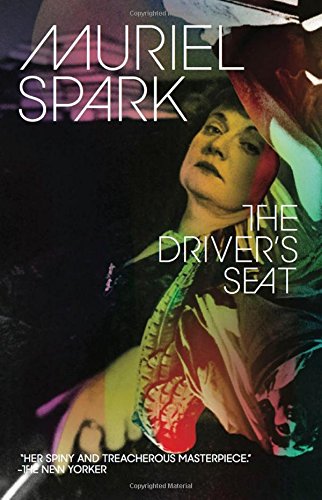 THE DRIVER’S SEAT, Muriel Spark
THE DRIVER’S SEAT, Muriel Spark
In this slim novel by the great Scottish novelist—selected by Tilda Swinton for her desert island bookshelf—the protagonise, Lise, walks out of her office one day, acquires a gaudy new outfit, adopts a girlier tone of voice, and heads to the airport to fly south. On the plane she takes a seat between two men. One is delighted with her company, the other is deeply perturbed. So begins an unnerving journey into the darker recesses of human nature, described in a recent overview by The Guardian as “a book of singular cruelty and shocking misanthropy.”
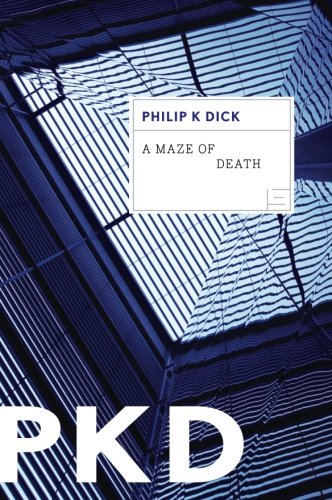 A MAZE OF DEATH, Philip K.Dick
A MAZE OF DEATH, Philip K.Dick
Fourteen strangers come to Delmak-O. Thirteen of them were transferred by the usual authorities. One got there by praying. But once they arrived on that treacherous planet, whose very atmosphere seemed to induce paranoia and psychosis, the newcomers tound that even prayer was useless. For on Delmak-O, God is either absent or intent on destroying His creations. At once a wrenching metaphysical thriller and an ingenious meditation on the nature of divinity, A Maze of Death is Philip K. Dick at his most dizzyingly provocative.
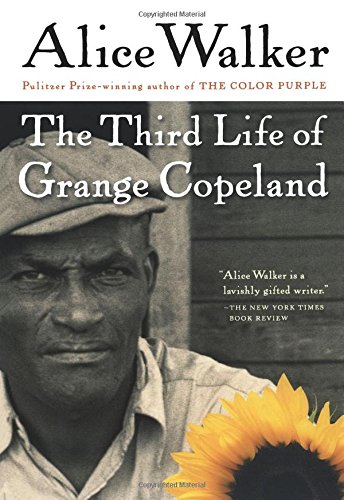 THE THIRD LIFE OF GRANGE COPELAND, Alice Walker
THE THIRD LIFE OF GRANGE COPELAND, Alice Walker
Alice Walker’s first book recounts the lives of three generations growing up in Georgia, where the author herself grew up. Grange Copeland is a black tenant farmer who is forced to leave his land and family in search of a better future. He heads North but discovers that the racism and poverty he experienced in the South are, in fact, everywhere. When he returns to Georgia years later he finds that his son Brownfield has been imprisoned for the murder of his wife. But hope comes in the form of the third generation as the guardian of the couple’s youngest daughter, Grange Copeland, who glimpses a chance of both spiritual and social freedom.
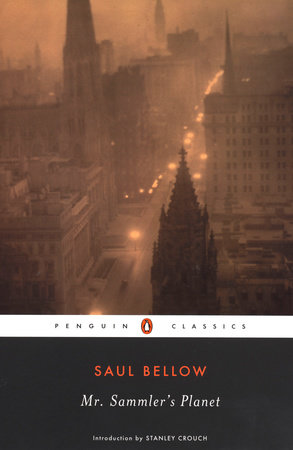 MR. SAMMLER’S PLANET, Saul Bellow
MR. SAMMLER’S PLANET, Saul Bellow
Like the rest of his neurotic-complex protagonists, Mr. Arthur Sammler, Holocaust survivor, intellectual, and occasional lecturer at Columbia University in 1960s New York City, is a “registrar of madness,” a refined and civilized being caught among people crazy with the promises of the future. His gaze reflects on the degradations of city life while looking deep into the sufferings of the human soul. “Sorry for all and sore at heart,” he observes how greater luxury and leisure have only led to more human suffering. To Mr. Sammler—who by the end of this ferociously unsentimental novel has found the compassionate consciousness necessary to bridge the gap between himself and his fellow beings—a good life is one in which a person does what is “required of him.”
Pecola Breedlove, a young black girl, prays every day for beauty. Mocked by other children for the dark skin, curly hair, and brown eyes that set her apart, she yearns for normalcy, for the blond hair and blue eyes that she believes will allow her to finally fit in.Yet as her dream grows more fervent, her life slowly starts to disintegrate in the face of adversity and strife. A powerful examination of our obsession with beauty and conformity, Toni Morrison’s virtuosic first novel has been chosen by One Grand curators ranging from Leslie Odom Jr. to Gabrielle Union to George Saunders.
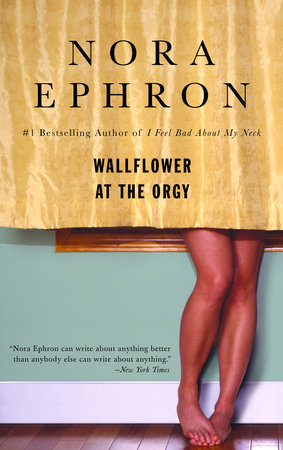 WALLFLOWER AT THE ORGY, Nora Ephron
WALLFLOWER AT THE ORGY, Nora Ephron
In this collection of magazine articles, Ephron does what she does best: embrace American culture with love, cynicism, and unmatched wit. From tracking down the beginnings of the self-help movement to dressing down the fashion world’s most powerful publication to capturing a glimpse of a legendary movie in the making, these timeless pieces tap into our enduring obsessions with celebrity, food, romance, clothes, entertainment, and sex. Whether casting her ingenious eye on director Mike Nichols, Cosmopolitan founder Helen Gurley Brown—or herself, as she chronicles her own beauty makeover—Ephron deftly weaves her journalistic skill with the intimate style of an essayist.
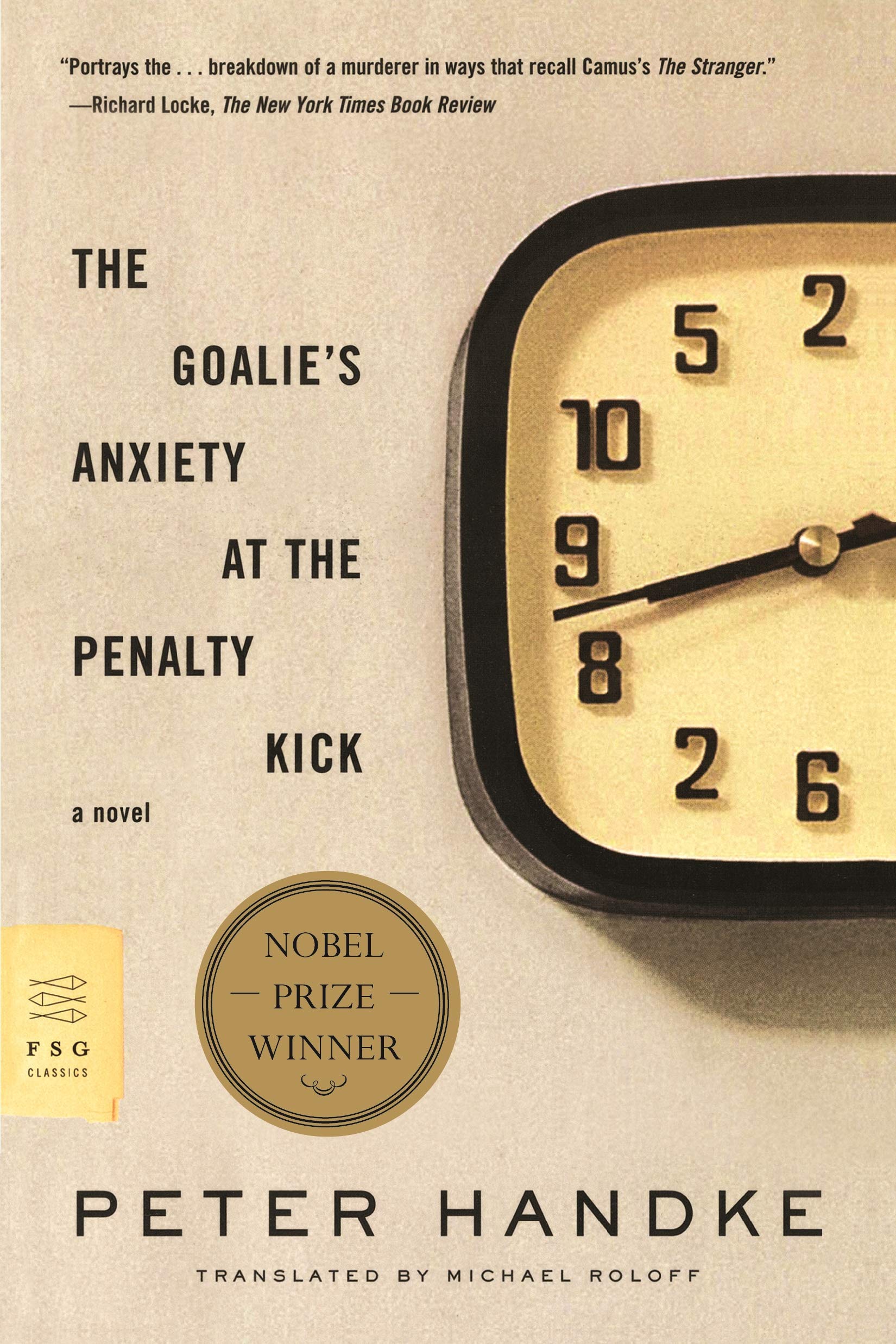 THE GOALIE’S ANXIETY AT THE PENALTY KICK, Peter Handke
THE GOALIE’S ANXIETY AT THE PENALTY KICK, Peter Handke
The first of the 2019 Noel Laureate Peter Handke’s novels to be published in English, The Goalie’s Anxiety at the Penalty Kick is a true modern classic that “portrays the breakdown of a murderer in ways that recall Camus’s The Stranger” (Richard Locke, The New York Times). The self-destruction of a soccer goalie turned construction worker who wanders aimlessly around a stifling Austrian border town after pursuing and then murdering, almost unthinkingly, a female movie cashier is mirrored by his use of direct, sometimes fractured prose that conveys “at its best a seamless blend of lyricism and horror seen in the runes of a disintegrating world.”
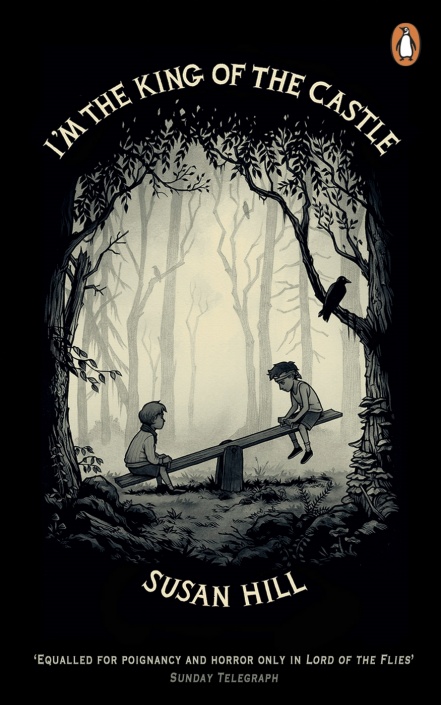 I’M THE KING OF THE CASTLE, Susan Hill
I’M THE KING OF THE CASTLE, Susan Hill
‘I didn’t want you to come here.’ So says the note that the boy Edmund Hooper passes to Charles Kingshaw upon his arrival at Warings. But young Kingshaw and his mother have come to live with Hooper and his father in the ugly, isolated Victorian house for good. To Hooper, Kingshaw is an intruder, a boy to be subtly persecuted, and Kingshaw finds that even the most ordinary object can be turned by Hooper into a source of terror. In Hang Wood their roles are briefly reversed, but Kingshaw knows Hooper will never let him be. He knows it, and so does Hooper. And the worst is still to come… This extraordinary, evocative novel boils over with the terrors of childhood and won the Somerset Maugham Award.
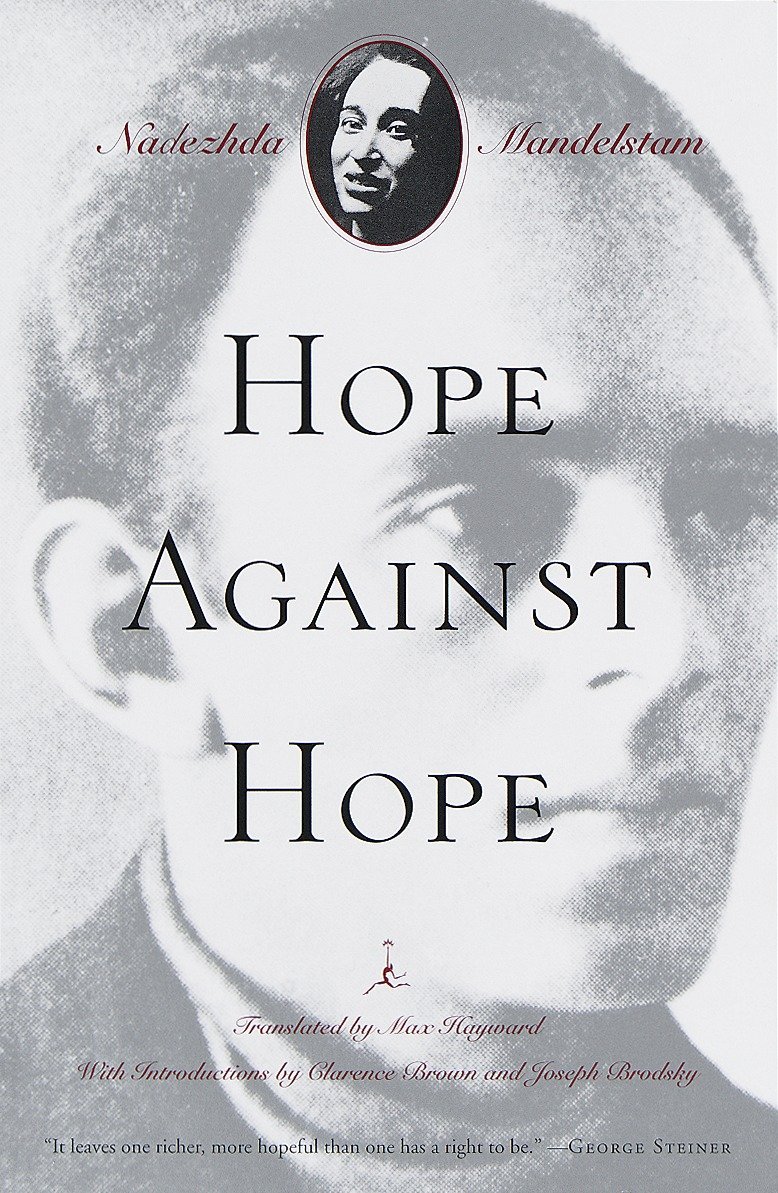 HOPE AGAINST HOPE, Nadezhda Mandelstam
HOPE AGAINST HOPE, Nadezhda Mandelstam
The story of the poet Osip Mandelstam, who suffered continuous persecution under Stalin, but whose wife constantly supported both him and his writings until he died in 1938. Hope Against Hope was first published in English in 1970. It is Nadezhda Mandelstam’s memoir of her life with Osip, who was first arrested in 1934 and died in Stalin’s Great Purge of 1937-38. Part of George Saunders’ One Grand list, it is a vital eyewitness account of Stalin’s Soviet Union and one of the greatest testaments to the value of literature and imaginative freedom ever written. But it is also a profound inspiration–a love story that relates the daily struggle to keep both love and art alive in the most desperate of circumstances.
Joe Brainard’s I Remember is a literary and artistic cult classic, praised and admired by writers from Paul Auster to John Ashery and Edmund White. As autobiography, Brainard’s method was brilliantly simple: to set down specific memories as they rose to the surface of his consciousness, each prefaced by the refrain “I remember”: “I remember when I thought that if you did anything bad, policemen would put you in jail.” Brainard’s enduring gem of a book has been issued in various forms over the past thirty years. In 1970, Angel Hair books published the first edition of I Remember, which quickly sold out; he wrote two subsequent volumes for Angel Hair, More I Remember (1972) and More I Remember More (1973), both of which proved as popular as the original.
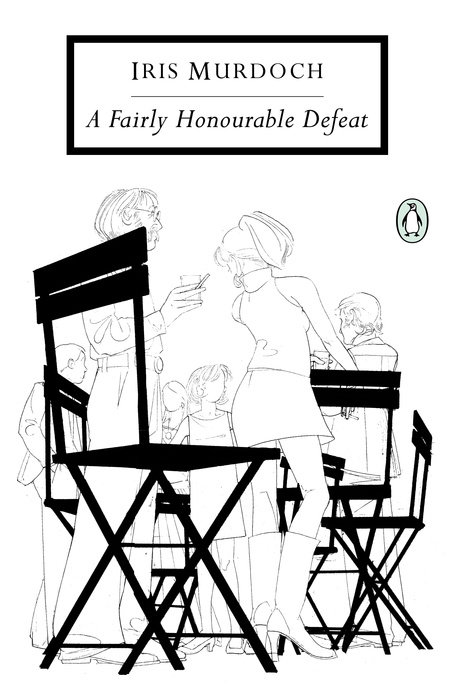 A FAIRLY HONORABLE DEFEAT, Iris Murdoch
A FAIRLY HONORABLE DEFEAT, Iris Murdoch
In a dark comedy of errors, Iris Murdoch portrays the mischief wrought by Julius, a cynical intellectual who decides to demonstrate through a Machiavellian experiment how easily loving couples, caring friends, and devoted siblings can betray their loyalties. As puppet master, Julius artfully plays on the human tendency to embrace drama and intrigue and to prefer the distraction of confrontations to the difficult effort of communicating openly and honestly. “[A Fairly Honourable Defeat] remains, fifty years later, perhaps the most beautiful literary representation of a same-sex marriage I know,” wrote the novelist Garth Greenwell recently.
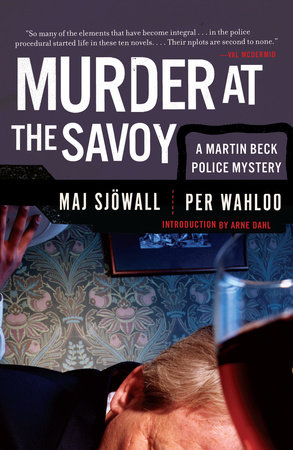 MURDER AT THE SAVOY, Maj Sjowall and Per Wahloo
MURDER AT THE SAVOY, Maj Sjowall and Per Wahloo
In this sixth novel in the acclaimed Martin Beck mystery series by the Nordic crime writing duo Maj Sjowall and Per Wahloo, Beck investigates a brutal assassination. When Viktor Palmgren, a powerful Swedish industrialist is shot during his after-dinner speech in the luxurious Hotel Savoy, it sends a shiver down the spine of the international money markets and terrifies the tiny town of Malmo. No one in the restaurant can identify the gunman, and local police are baffled. That’s when Beck takes over the scene and quickly picks through Palmgren’s background. What he finds is a web of vice so despicable that it’s hard for him to imagine who wouldn’t want Palmgren dead, but that doesn’t stop him and his team of dedicated detectives from tackling one of their most intriguing cases yet.
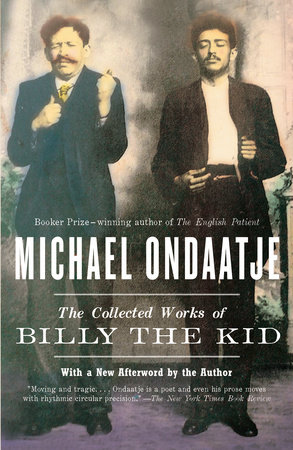 THE COLLECTED WORKS OF BILLY THE KID, Michael Ondaatje
THE COLLECTED WORKS OF BILLY THE KID, Michael Ondaatje
From the Booker Prize-winning author of The English Patient comes a novel unlike any other, according to literary journal Granta, which anointed this the best book of 1970. A Sri Lankan-born Canadian fiction writer and poet, Odaatje’s collage of imagined interviews, poems, prose and even photos, fragments that when pasted together form a strange and beautiful exploration of one of the most enduring mythic figures of the American West. “Ondaatje’s language is clean and energetic, with the pop of bullets,” wrote Annie Dillard. He may the only writer with a species of Sri Lankan spider–Brignolia ondaatjei–named after him.
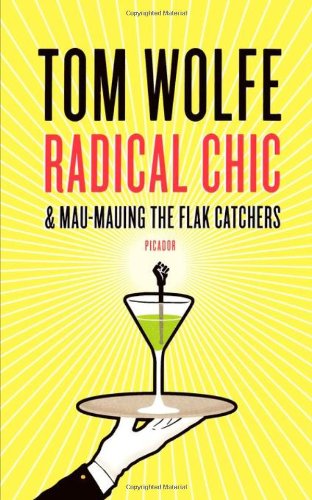 RADICAL CHI AND MAU-MAUING THE FLAK CATCHERS, Tom Wolfe
RADICAL CHI AND MAU-MAUING THE FLAK CATCHERS, Tom Wolfe
Originally published in New York magazine, Radical Chic was a major talking point when it first appeared, in large measure due to its somewhat cruel depiction of Leonard Bernstein and his liberal coterie hobnobbing with the Black Panthers, but it was also heralded for its vivid eye and attention to detail. “Wolfe proves himself the complete chameleon, capable of turning any color,” wrote a reviewer in The New York Times. “He understands the human animal like no sociologist around. He tweaks his reader’s every buried thought and prejudice. He sees through everything.” But does Wolfe’s study of the establishment and the resistance still hold up today?
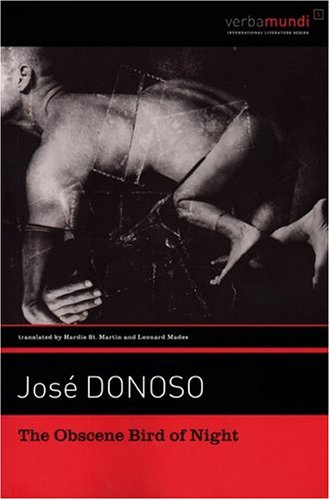 THE OBSCENE BIRD OF THE NIGHT, José Donoso
THE OBSCENE BIRD OF THE NIGHT, José Donoso
Among the most acclaimed novels of Chilean writer José Donoso—who deployed surrealism and social satire in his “multilayered visions of social disintegration and human fallibility,” this novel explores the cyclical nature of life and death and the connection between childhood and old age through shared fears and fantasies and a mutual lack of bodily control.
VOTE BELOW FOR THE TEN BOOKS ON THIS LIST YOU WANT TO READ IN 2020
[yop_poll id=2]

